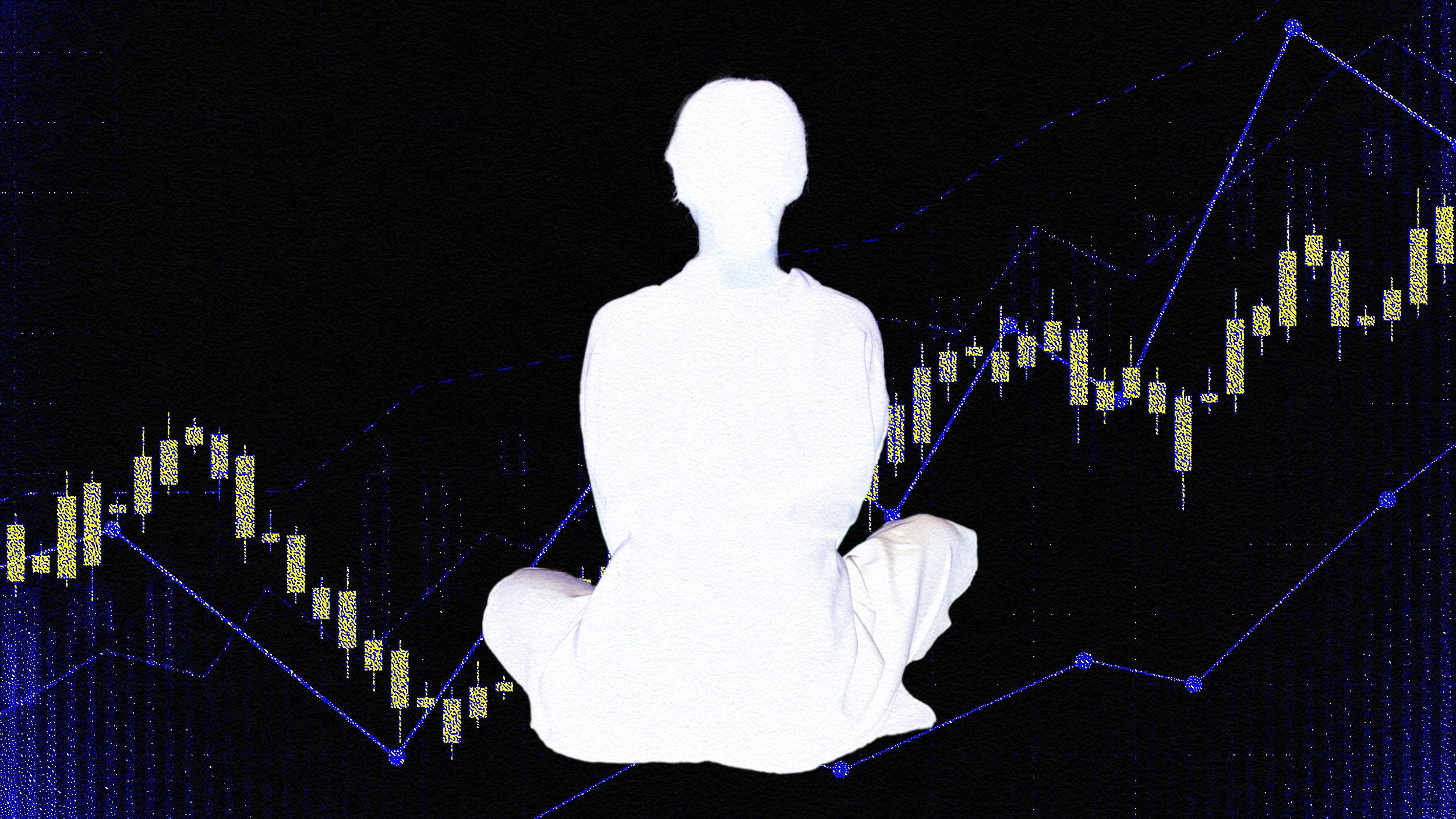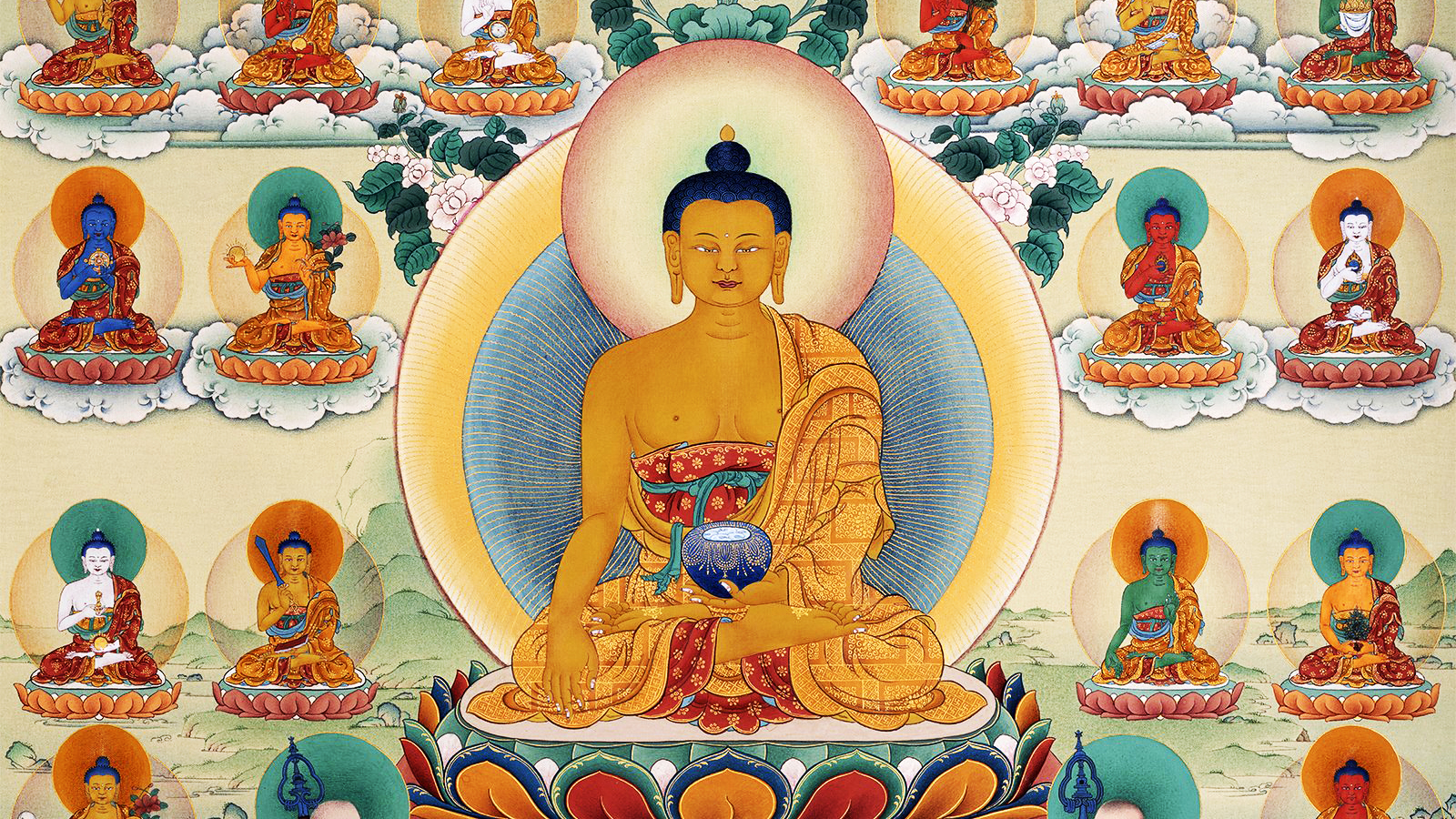How to meditate when you’re bad at it

Robert Wright was having a dilemma. During a silent meditation retreat his teacher, Narayan Liebenson, did not approve of the fact that he was writing a book about meditation. While such Vipassana retreats require practitioners to not read, write, practice yoga, and text-while-sitting, he had snuck a notepad into the center late night scribbling. How else would he recall all those essential reflections in a week?
Liebenson was unmoved by the idea that his book could help inspire others to meditate. So during the counseling session—while the retreat is silent, brief opportunities allow you to discuss your meditations with a teacher—Liebson was blunt: “I think you may have to choose between writing this book and liberation.”
Liberation. The word swirled around in Wright’s mind. That wasn’t necessarily his goal, simply because he considered himself a poor candidate for such a lofty ambition. He even opens his latest book—a writer will always choose the book—discussing how bad a meditator he is, in contradiction to the advice of experienced teachers. As Wright recently told me,
Teachers discourage you from thinking about success or failure.
Why Buddhism is True is Wright’s account of his meditation experiences. The “true” part has nothing to do with religious metaphysics; he’s not debating the validity of Buddhism as compared to Christianity or Islam. Instead he takes a secular look into the psychological effects of mindfulness in the Buddhist tradition. Against his teachers’ advice, he openly discusses his lack of success—which, as he mentions, helped him reorient how he understands success.
It’s a good idea to define success broadly, including to just be aware that you’re failing to focus on your breath.
Wright lacks a sustained attention span, one reason he knew he had to dive into meditation “boot camp” style. If he was going to dedicate himself to something—as a bestselling author and Pulitzer Prize finalist, commitment is not an issue—he had to dive in headfirst. His initial experience with meditation was a ten-day silent retreat in the Vipassana tradition.
There are many ways to meditate. Focusing on your breath is one. There’s walking meditation; japa, or the repeating of mantras inside of your head or verbally; candle and navel gazing. There’s also intense zazen from the Zen tradition. A good friend has sat zazen for forty years and is accustomed to being whacked with a stick if he twitches too much. Each style offers cognitive benefits. Mindfulness is more forgiving than the stick whackers.
That’s because you’re not necessarily trying to do anything, save observe what your brain already does. Of course, Wright says, we have goals. For some it’s liberation. For many it’s therapeutic, though as Wright puts it, liberation and therapy are not necessarily mutually exclusive. In the simplest manner, we want to make better decisions in our life and not be emotional messes. Meditation helps.
Yet a mess he was during his first four days of his first retreat. On the fifth day an experience put the entire discipline into focus. He had a moment, and hasn’t stopped meditating since, attending six retreats over the last eight years while committing to a daily practice. This dedication has helped him in his career and as a human being.
Mindfulness meditation is very well suited for thinking about the human mind. A lot of it is observing the way your mind works, observing the role of feelings and thoughts, after you reach a state of sufficient calm to be able to observe all of that. Usually we don’t reach that state because we’re wrapped up in life, either focusing on some task or because our mind is wandering.
Why Buddhism is True is Wright’s most personal book to date. The Evolution of God and The Moral Animal explained our place on this planet in different ways, but this book is both memoir and deep dive into Buddhist concepts like non-self and dukkha, a Pāli term that usually translates to “suffering” but is perhaps better described as “unsatisfactoriness.”
We suffer because we’re not satisfied with how life is working out, whether personally or globally. We say “things aren’t the way they’re supposed to be” quicker than we’ll admit “my perception is biased against the way things really are.” There are ways of making change “out there,” but from a Buddhist perspective, you begin by changing your perception. That has a influential effect in the world, though it starts with a reorientation of how you navigate your inner terrain.
If you look at long-range goals of extended practice, they include letting go of a lot of the things that we think of ordinarily as part of the self: grasping, cravings, and certain stories we tell about ourselves that may not correspond to reality. In the extreme case if you practice diligently you can have the not-self experience, where your conception of you almost flows seamlessly into your perception of yourself “out there.”
Which is what Wright briefly experienced on that fifth day, the distance between his individual body and the world lessening. While such moments are profound, the everyday traces of the practice are what really matters: not responding so quickly to an email that frustrates you or saying something snide for no good reason.
Wright discusses the famous red pill-blue pill scene in The Matrix as an entry point into meditation, interestingly the same movie I reference in describing mindfulness meditation, only a different scene: Neo dodging bullets as if through a slow-moving liquid. What would normally be immediate and highly reactive, like a gunshot, is slowed to a manageable (and avoidable) speed. Translating to meditation, Neo sees his reactions, but they’re slower; he has time to decide how to move on them. In the end, thanks to training, he avoids danger.
Which is effectively how Wright has come to understand liberation, not as a sustained state someone is but by better decision making through sustained practice.
As a practical manner, I think of enlightenment as an ongoing process where you try to become more and more aware of the things that are influencing your behavior. By understanding them you no longer have to respond reflexively; to the extent that you want, you liberate yourself from them.
In fourteen years of teaching yoga I’ve heard numerous people tell me they’re “bad” at it. I remind students they can’t really be bad at it; that’s the result of looking at too many Instagram feeds of people showing off. You can, though, be focused or not focused. The only way you become focused is by practicing becoming focused, which requires hours upon hours of losing focus.
Which I believe is the same point Wright comes to. Mindfulness meditation is a discipline of observation, a more acute understanding of our interior world than we normally apply. Instead of being swept away by thoughts and feelings—as Wright explains in the book, these two are not separate occurrences—we observe the patterns we’ve constructed about how we view and act in reality.
Through continual observation we empower ourselves to shift subtle behavioral patterns. We show up in life in a way that better suits who we want to be and how we want to act. As Wright tells me,
The claim of Buddhism is that there is a natural convergence between seeing the world more clearly and becoming a more contented person, and also becoming a better person.
Mindfulness meditation isn’t the only way to achieve this, but it is a powerful one, and, given its recent growth in popularity, an available one. It might not always be joyous, and it certainly requires a redefinition of what many term ‘boredom,’ but I fully agree when Wright concludes,
The daily rewards are worth the daily effort.
—
Derek is the author of Whole Motion: Training Your Brain and Body For Optimal Health. Based in Los Angeles he is working on a new book about spiritual consumerism. Stay in touch on Facebook and Twitter.





